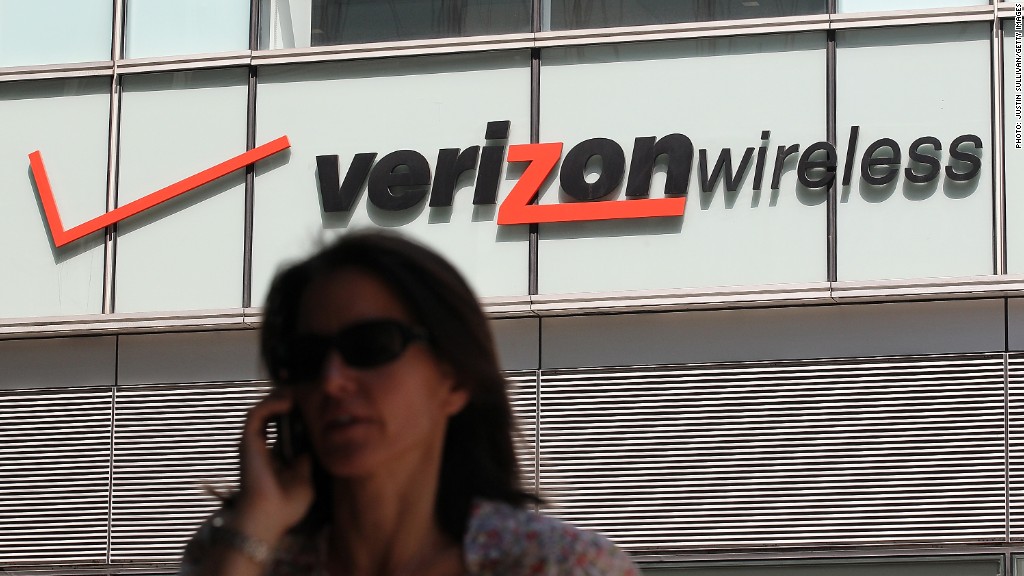
When Verizon announced plans in July to throttle the connections of data-hungry customers, federal regulators cried foul. Now, Verizon is backing down.
The wireless giant is abandoning its plan to slow down 4G connection speeds for certain customers with unlimited data plans, which Federal Communications Commission chairman Tom Wheeler had called "disturbing."
Verizon no longer offers unlimited data plans to new customers. But subscribers who signed up for unlimited plans before Verizon ditched them in 2012 can keep those plans -- provided they pay full price when they get a new phone. The company said in July that it would occasionally slow the connection speeds of those customers during times of heavy network usage if they fall within the top 5% of data users.
Related: Top 10 companies lobbying Washington
Verizon said at the time that the throttling would help it manage its network. But Wheeler rejected "network management" as a justification for slowing connections of paying customers. He suggested that the company was instead trying to force people into usage-based plans, in which customers pay per gigabyte.
Verizon said this week that it "greatly valued the ongoing dialogue over the past several months concerning network optimization and we've decided not to move forward with the planned implementation of network optimization."
Translation: you win this one, FCC.
The move appeared to appease Wheeler, who said he "salute[s] Verizon Wireless's decision."
"This is a responsible action and I commend Verizon's leadership on this issue," Wheeler said in a statement.
Related: Which carrier has the best deal on the iPhone 6?
The FCC is currently in the process of finalizing new regulations on "net neutrality," or how broadband Internet providers can treat traffic on their networks. Initial drafts of those rules have indicated that they won't apply to mobile connections.
Mobile connections differ from broadband in part because wireless spectrum -- the collection of frequencies over which all wireless transmissions travel -- is a finite resource, meaning traffic management can be more challenging for carriers.
But that doesn't mean they're immune from new regulation. In a speech last month, Wheeler said the FCC could issue new net neutrality regulations for the mobile Web as well.

